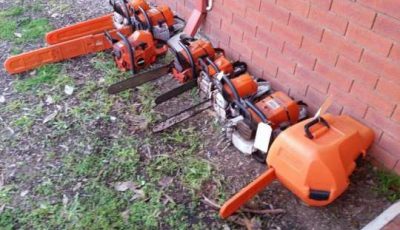Warning: Undefined array key "dirname" in /home/anapuafm/public_html/wp-content/themes/anapuafm/include/plugin/filosofo-image/filosofo-custom-image-sizes.php on line 133
Warning: Undefined array key "extension" in /home/anapuafm/public_html/wp-content/themes/anapuafm/include/plugin/filosofo-image/filosofo-custom-image-sizes.php on line 134
Ahead of Dec 7 polls : where will Brong Ahafo swing to?
The Brong Ahafo Region can indeed be categorised as one of the swing regions in the country where the electorate have been changing their minds on which party they vote for from one election to another since Ghana returned to constitutional rule in 1992.
It is, therefore, not surprising that both the National Democratic Congress (NDC) and the New Patriotic Party (NPP) have been very busy in the region since electioneering for the 2016 general election kicked-off.
While the NPP launched its campaign in Sunyani earlier this year, the NDC launched its manifesto in Sunyani with fanfare.
Since then, President John Mahama and Nana Addo-Dankwa Akufo-Addo, the flag bearers of the NDC and NPP respectively, have been in and out of the region on a number of occasions to swing votes in their favour.
1996 General Election
Even though Ghana entered into the Fourth Republic in 1992, the real parliamentary contest between the two major parties began in 1996 as a result of the boycott staged by the NPP during the 1992 parliamentary polls.
In that election, the NDC won 17 out of the 21 seats with 80.95 per cent of the parliamentary votes, while the NPP had four seats with just 19.05 per cent of the votes.
In the presidential polls, Flt Lt Jerry John Rawlings had 395,381 (61.73), while John Agyekum Kufuor of the NPP garnered 230,457, representing 35.98 per cent of the total votes cast.
2000/2004/2008 General Elections
In the 2000 general election, however, votes in the region swung in favour of the NPP when J.A Kufuor won the Presidential votes with 306,506 (50.58 per cent), while the NDC candidate, Prof. John Evans Atta Mills, had 270,465 votes (44.63 per cent).
Just like the swing in the Presidential poll the NPP won 14 out of the 21 seats, while the NDC had only seven, losing 10 of its seats.
Even though the NPP won the region in the 2004 general election, the NDC made some gains when the number of constituencies were increased from 21 to 24.
In that election, the NDC increased its seats in the region from seven to 10, while the NPP maintained its 14 seats in the region.
In the presidential election, the then President Kufuor had 393,033 votes (51.95 per cent); J.E.A Mills, followed with 348,805 (46.11 per cent); Edward Mahama (PNC), 8,444 (1.12 per cent) while George Agudey of CPP had 6,209 votes (0.82 per cent).
In the 2008 general election, the NPP increased its seats in the region from 14 to 16, while NDC’s 10 seats reduced to eight.
In the presidential election, the NPP’s candidate, Nana Addo-Dankwa Akufo-Addo, won with 392,588 votes (50.56 per cent), while J.E.A Mills followed with 370,400, representing 47.70 of the total votes cast.
2012 General Election
For the 2102 general election, new constituencies were created throughout the country, with five seats being added to the 24 seats in the Brong Ahafo Region to make them 29.
At the end of the polls, the ruling NDC increased its seats from eight to 16 while NPP’s 16 seats were reduced to 13.
President John Dramani Mahama won the popular votes in the region with 511,244 votes (51.49 per cent), while Nana Akufo-Addo got 469,909 (47.33 per cent).
There were other candidates: Henry Herbert Lartey (GCPP), Dr Papa Kwesi Nduom (PPP), Dr Abu Sakara (CPP), Mr Hassan Ayariga (PNC), Mr Kwasi Addae Odike (UFP) and an independent candidate, Mr Joseph Osei Yeboah, none of whom got one per cent of votes cast in the region.
Skirt and blouse
Skirt and blouse voting is a Ghanaian electoral term used to describe the phenomenon in which an electorate votes for a presidential candidate or a parliamentary candidate of a party but votes for a presidential or a parliamentary candidate of another party.
In the 1996 polls, the Tano North and the Wenchi constituencies witnessed this type of voting.
In both cases, while J.J Rawlings won the Presidential votes, Alhaji Moctar Musah Bamba and Joe Donkor of the NPP won the Wenchi and the Tano North seats, respectively.
In the 2000 elections, the Jaman and Techiman North constituencies voted skirt and blouse.
In the Jaman Constituency, Prof. Mills won with 20,021, but the NPP’s Anna Nyamekye won the seat with 19,720, beating the NDC incumbent MP, Mr Nicholas Appiah-Kubi, who had 18,807 votes.
In the Techiman North even though NPP candidate, J.A Kufuor, won with 9,968 votes, NDC’s Issac Adjei-Mensah won the parliamentary contest with 9,830 votes, as against the NPP’s Isaac Osei Antwi’s votes of 9,553.
In the 2004 elections, the Asunafo South, Asutifi South and the Nkoranza South also voted in a skirt and blouse fashion but in the 2008 general election, only the Nkoranza South Constituency voted in this way.
In the 2012 general election, Jaman North, Nkoranza North, Tano North and the Wenchi constituencies witnessed the skirt and blouse voting pattern.
Crucial 2016 election
The Brong Ahafo Region has become one of the main battle grounds for both the NPP and the NDC in the electioneering towards the 2016 polls.
According to an NDC’s stalwart in the region, Mr Takyi Arhin, the NDC would win 21 seats and 54 per cent of the presidential votes in the region, and he attributed this to “the massive projects it has undertaken in the region.”
The NPP is also hopeful of winning about 20 seats while the PPP is also aiming at winning 10 out of the 29 seats in the region.
The question is: Where will the votes in the region swing towards? It is the conviction of this writer that any of the parties which will win the region could emerge as the eventual winner of the 2016 general election
Source: Graphic




